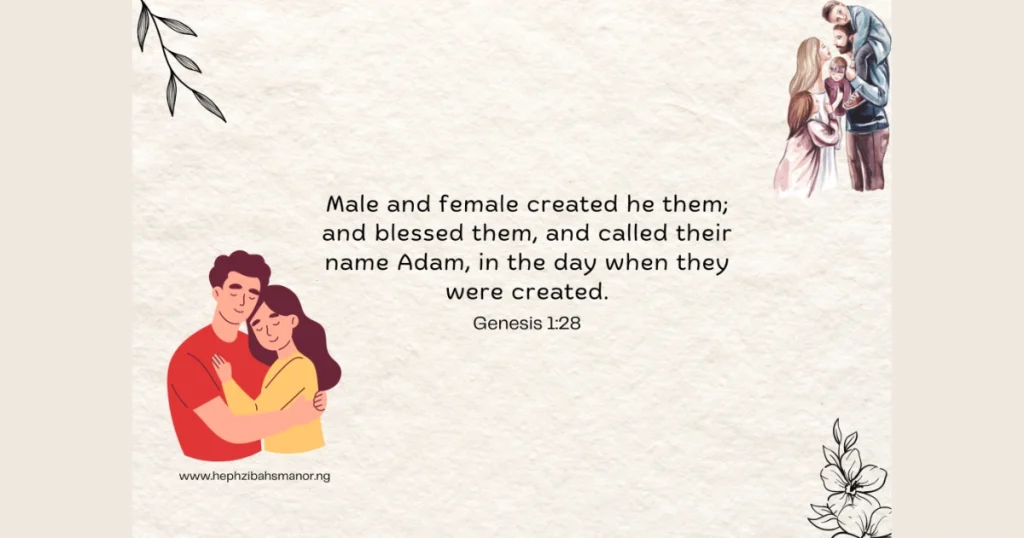God doesn’t deal with all of us the same way.
He loves us equally. We all have the same measure of His love, attention, and affection. But when it comes to how He works in us, disciplines us, speaks to us, and assigns us tasks, He does so according to our capacity, our level of maturity.
This doesn’t mean God may not intend to assign certain roles or tasks to us, in fact, it may very well be written into our destinies to become this or to do that. But until we grow, until we mature into the stature required, we don’t receive the go-ahead, neither do we get the resources needed for such responsibilities. As Scripture says, “the heir, as long as he is a child, differs nothing from a servant…” (Galatians 4:1)
I Don’t Parent My Sons the Same Way
I have two sons. I love them both fiercely. If you asked me which one I love more, I couldn’t tell you, because there is no ‘more’ in the heart of most mothers.
But do I discipline them the same way? No.
Do I correct them for the same things? Not always.
What I may give John a pass on, I may not give Ezekiel a pass on, and it’s not because one is better than the other. It’s because I understand them individually and recognize that their levels of maturity are not the same. It’s not to say that John is less intelligent or incapable; it’s simply because he’s younger. His emotional maturity, his exposure, his understanding are not as developed as Ezekiel’s. To place the same expectations on him as I do on his older brother would not only be unwise, it would be unfair.
That’s not partiality.
That’s parenting.
Teaching Justice Through Mercy
I remember a moment that really brought this to life in my parenting.
John had done something that Ezekiel was sure would earn him a stern correction. He came to report it, and I could tell he wasn’t just being an ‘amebo’, He genuinely expected justice to roll down like thunder. He was watching me intently, standing there like,
“Let’s see what Mom will do. Judgment must fall!”
Instead of immediately responding with punishment or outrightly sparing John, I turned to Ezekiel and said,
“Ezekiel, I think I shouldn’t spank John this time. He’s still learning. What do you think?”
You know what happened?
Ezekiel, wide-eyed and caught a bit off guard, nodded with a big smile and said, “Yes mom!, don’t spank him!
In that moment, I didn’t just correct behaviour; I taught mercy, understanding, and discernment.
I taught Ezekiel that justice is not always loud and painful, that sometimes wisdom looks like knowing when not to act, or when to act differently.
And I also showed John that love doesn’t mean anything goes, it means you are seen, your growth is understood, and your journey is safe.
Understanding the Wineskin
I believe this is how God, our Father, parents us.. He’s not a mechanical disciplinarian, checking off behavior charts and administering punishments in equal measure. He sees our hearts. He knows our capacity, He sees where we are..
So as parents, we should learn to parent not just rules and expectations, but with the same grace with which Jesus Christ shaped His disciples, the same love that waited patiently while they matured into the apostles who would turn the world right side up.
When the Pharisees came asking why Jesus’ disciples weren’t fasting like other religious groups, Jesus responded by saying:
“Can the wedding guests mourn as long as the bridegroom is with them?” (Matthew 9:15)
Then He went further to explain something even deeper:
“Neither is new wine put into old wineskins. If it is, the skins burst and the wine is spilled and the skins are destroyed. But new wine is put into fresh wineskins, and so both are preserved.” (Matthew 9:17)
He was saying in essence: What I’m building in these men is new. Their foundations are still being laid. If I pour the full weight of religious expectation on them right now, they will burst. They won’t be able to handle it.
It wasn’t that Jesus was lowering the standard. It was that He was laying the groundwork for something higher. He was patient because He saw what they would become. That’s not favouritism. That’s wisdom. It’s what parenting looks like when we mirror God.
It Takes God’s Wisdom
Of course, all of this requires dependence on God’s wisdom. It’s a thin line to walk, because while you’re trying to be discerning, you don’t want to come off as a partial parent. Many people have accused God of being partial. But those same people often discover that when they align themselves with the same principles and walk in obedience, just like the children they believe God favors, they receive the same results.
God is not arbitrary. Everything He does, everything He gives, is for the greater good. If giving you a gift or a responsibility would destroy you or harm others around you, God will withhold it, not because He loves you any less, but because He’s protecting everyone involved. Even you.
As Parents, We Must Learn to See Through God’s Eyes, Not the Same, But Not Less
We must stop raising children like Pharisees, where we expect uniformity and compliance with no regard for individuality or growth stage. That’s not how God raises us.
Effective parenting doesn’t have to be uniform, equal love doesn’t demand identical parenting
It is unfair to compare the growth of our children
Even two trees planted in the same soil, on the same day, receiving the same nutrients, water, sunlight, and carbon dioxide will not grow at the same rate. Though they may bear the same type of fruit, they will grow at different speeds and bear varying numbers of fruits.
This means that your expectations for your children should be age-appropriate. It doesn’t mean you shouldn’t expect great and mighty things from them, but let your expectations be guided by the Holy Spirit and the Word of God, not by what your older son is doing or what your neighbour’s child is accomplishing. Make sure your hopes, expectations, and demands align with what the Holy Spirit expects.
Your child and someone else’s child are not the same. Even your firstborn and your second-born are not the same.
And so, in your love, be just.
In your discipline, be discerning.
In your training, be wise.
Raise them the way Jesus raised His disciples, with love, patience, and understanding of who they were becoming.
Grace is Not Partiality
As your child grows, the Lord will give you insight into what they can bear now and what they’re being prepared to carry in the future. Don’t pour wine where there is no wineskin yet. Don’t tear down what is still being built.
Raise them from a place of understanding, not assumption.
Remember: God sees their frame and deals with them accordingly. So should you.
This is not partiality. This is wisdom.
This is parenting with foresight.
This is knowing, like Jesus did, that “I still have many things to say to you, but you cannot bear them now.” (John 16:12)
It is refusing to break a child under the weight of an expectation they are not yet equipped to carry.
It is being willing to explain, to wait, to grow with them.
It is knowing that your children are not clones of one another; they are individuals with different journeys and capacities. And as parents, our job is not to impose sameness, but to discern their seasons and steward their hearts accordingly.






